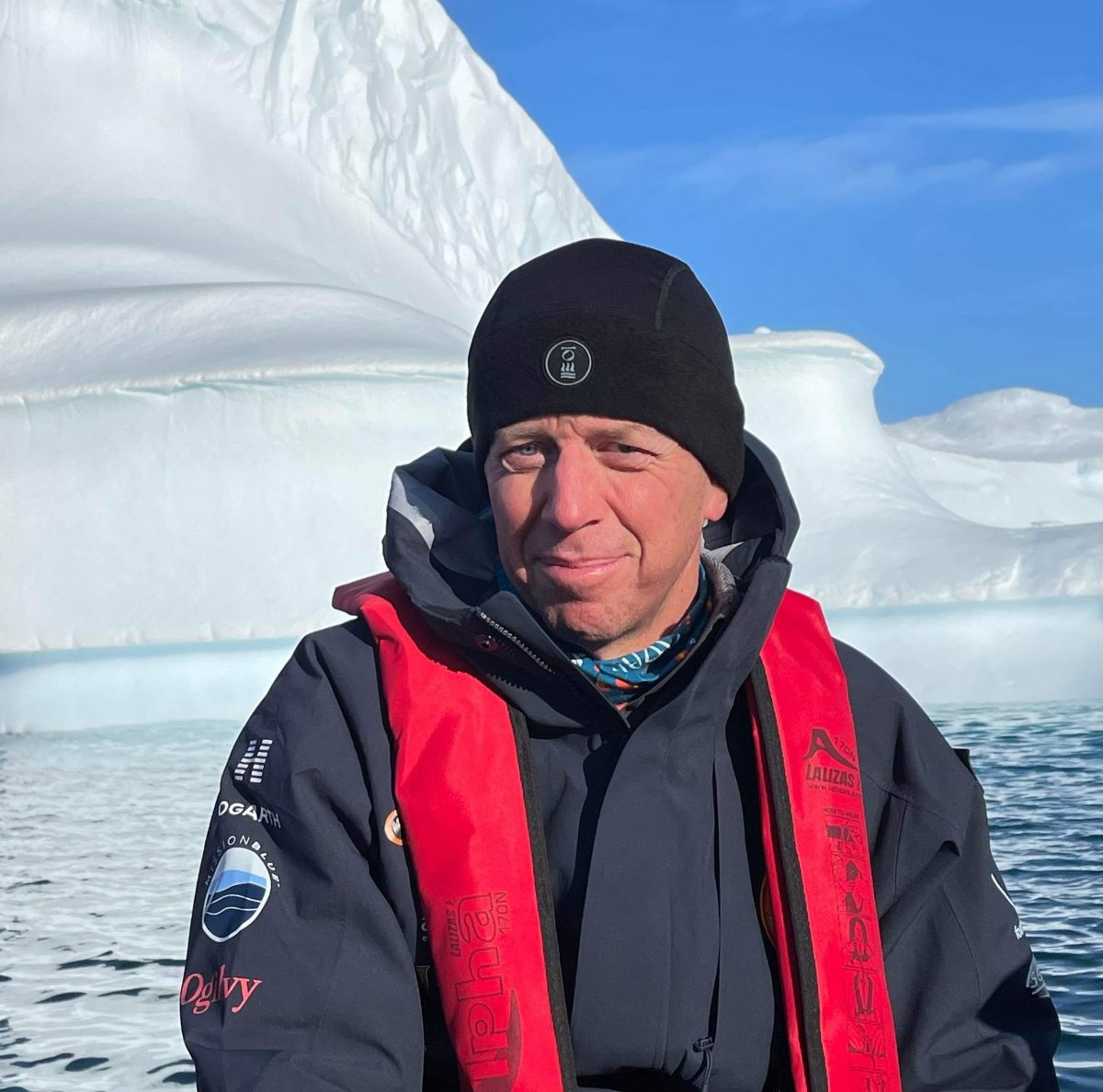
The trip was for pleasure, but there was a serious side for Shane Rattenbury. Photo: ACT Government.
The ACT’s Minister for Energy and Emissions Reduction and Green’s leader has come back from two weeks of personal leave with renewed vigour to tackle Canberra’s emissions.
Shane Rattenbury was invited to join an expedition to Antarctica from 13 to 25 February, as one of 110 climate change ambassadors from around the world.
The Antarctic Climate Expedition 2023 was run by the Ocean Geographic Society on board a new, ‘climate-neutral’ Aurora Expeditions ship, named in honour of oceanographer and leading marine conservationist Dr Sylvia Earle. Dr Earle herself hosted the expedition.
While the trip was primarily for pleasure – watching whales, counting penguin colonies, taking photos and more – there was also business to attend to.
The group, which included experts from the fields of science, art, education and economics – alongside inquisitive teenagers and corporate executives – were tasked with putting their heads together to come up with 23 resolutions to “inspire transformative changes for global net-zero emissions by 2035”.
“The trip was … to tell the story of Antarctica, both as being at the forefront of climate change impacts but also the impact that people have on the rest of the planet,” Mr Rattenbury told Region.
According to Ocean Geographic, the masterplan for the Antarctic Climate Expedition is “to bring about public and government awareness of the importance and the splendour of the Antarctic and to address the warming climate and loss of ice in the southern polar region as a direct threat to the future of human life on this planet”.
Mr Rattenbury was invited along “because the organisers recognised Canberra has made significant progress in tackling emissions”.
“They see us as a great case study of what you can do if you want to be serious about tackling climate change.”
Since 1990, Canberra has reduced greenhouse gas emissions by 46 per cent, despite a population that has nearly doubled in size from 282,000 to 439,000 people.

An artist’s impression of the Sylvia Earl in Antarctic waters. Photo: Aurora Expeditions.
During a series of lectures on the expedition, Mr Rattenbury talked about “how mid-size cities can change the world”.
“Up to 22 per cent of the world’s population lives in mid-size cities and that’s rapidly growing. They are places where you can implement change quite quickly if you commit to doing it. What we’ve done can be copied by others.”
The latest sea ice report for the South Pole showed this summer’s sea ice levels are the lowest recorded since satellite imaging began in 1979. On 21 February, 2023, sea ice in the Antarctic reached an annual minimum extent of 1.79 million square kilometres.
It’s the second consecutive record low for Antarctic sea ice, although it’s worth noting 2013 through to 2015 saw near record high minimum extents.
“The biggest takeaway is how quickly things are changing,” Mr Rattenbury said.
“Even some on the ship can describe places where they’ve been able to go this time, where they haven’t been able to in the past due to the sea ice.”
It wasn’t his first trip to Antarctica. Back when Mr Rattenbury was head of oceans for Greenpeace International, he was leader of a “confrontational and dangerous” expedition in the summer of 2005/06.
Two ships and 60 crew members were tasked with taking on a Japanese whaling fleet, after the Japanese government had significantly increased the quota their hunters were allowed to kill.
“I was down there leading the crew in a nonviolent, direct attempt to interfere with the hunt by putting ourselves between the whales and the harpoons,” he said.
“We were able to slow down the hunt.”

Shane Rattenbury is looking to tackle climate change challenges. Photo: ACT Government.
Mr Rattenbury said the latest Ocean Geographic expedition took in a different part of Antarctica, so he couldn’t personally reflect on any major changes to the landscape since then.
“I was predominately at sea on the last trip, whereas this time I was able to land on the continent itself, so I wasn’t able to make those direct comparisons.”
Either way, he said he’d returned with renewed vigour to tackle climate-related issues here in Canberra.
“The urgency is so clear, we have no time to waste and we have to work as fast as we can if we are to avoid the worst impacts of climate change.”
Continuing to cut emissions from transport and build up the city’s electric vehicle fleet remain the focus, with the announcement of a promotional campaign for ‘World Car Free Day’ on 22 September to follow soon.
“This is a critical decade.”












